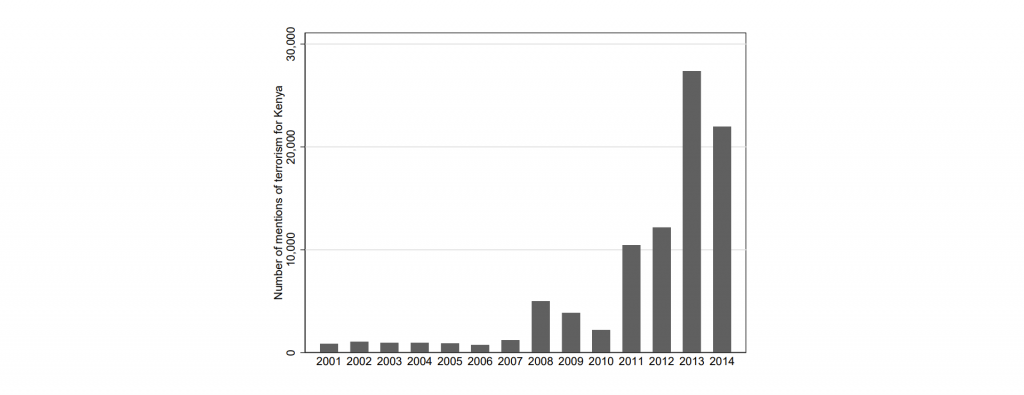We relate terrorist attacks to media signal coverage and schooling in Kenya to examine how terrorism alters the demand for education through perceived risks and returns. Exploiting variation in wireless signal coverage and attacks across space and time, we establish that media access reinforces negative effects of terrorism on schooling. Our results are robust to instrumenting both media signal and attacks. We also find that attacks raise self-reported fears for households with media access. Based on these insights, we estimate a simple structural model where heterogeneous households experiencing terrorism form beliefs about risks and returns to education. We allow these beliefs to be affected by media and find that households with media access significantly over-estimate fatality risks.
Terrorism, Media Coverage, And Education: Evidence From Al-Shabaab Attacks In Kenya
